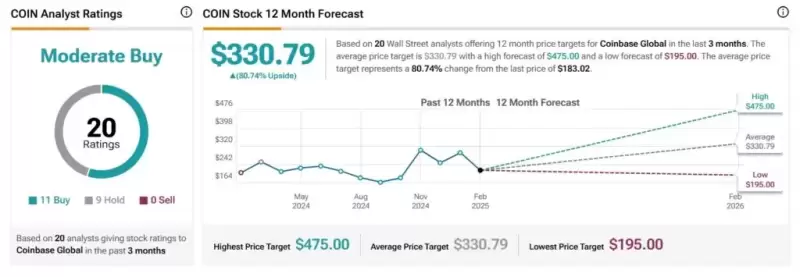 |
|
 |
|
 |
|
 |
|
 |
|
 |
|
 |
|
 |
|
 |
|
 |
|
 |
|
 |
|
 |
|
 |
|
 |
|
Cryptocurrency News Articles
Bitcoin and DeFi: Redefining the Future of Finance
Apr 29, 2024 at 07:30 am
The convergence of Bitcoin, the pioneering cryptocurrency, and Decentralised Finance (DeFi) presents a transformative force in the financial landscape. DeFi leverages blockchain technology to create innovative financial services without intermediaries, while Bitcoin serves as a valuable collateral asset and potential store of value within DeFi protocols. This intersection empowers financial inclusion, enhances transparency, and fosters rapid innovation in financial products. However, risks associated with smart contracts, market volatility, and regulatory uncertainty require careful management.

Bitcoin and DeFi: A Revolution in the Financial Landscape
Since the advent of Bitcoin in 2009, the landscape of finance has undergone a paradigm shift, ushered in by the transformative power of cryptocurrencies and blockchain technology. At the forefront of this revolution lies Decentralised Finance (DeFi), a burgeoning ecosystem that challenges traditional intermediaries and introduces a new era of financial empowerment. At the intersection of these two titans, Bitcoin and DeFi, a fertile ground for innovation has emerged, redefining the boundaries of financial inclusion, transparency, and accessibility.
Decentralised Finance: A New Paradigm
DeFi represents a radical departure from the centralised financial systems that have long dominated the world. Built upon the unshakeable foundation of blockchain technology, DeFi empowers individuals with unprecedented financial freedom, offering a suite of innovative services:
Permissionless Access: DeFi services stand open to all, fostering financial inclusion for those who have historically faced barriers to entry in traditional finance.
Transparency: Transactions are indelibly etched upon the blockchain, ensuring complete transparency and accountability, eliminating concerns of opacity and manipulation.
Censorship Resistance: DeFi operates free from centralised control, ensuring that no single entity can restrict access to financial services, empowering individuals to navigate financial markets without fear of arbitrary interference.
Security and Automation: Smart contracts, self-executing programs, drive DeFi transactions, minimising reliance on trusted third parties and reducing the risk of fraud and corruption.
These features empower Decentralised Applications (dApps) to redefine financial services:
Lending and Borrowing: DeFi lending platforms, such as Aave, eliminate intermediaries, directly connecting borrowers and lenders. Users can securely deposit their crypto assets to earn interest, while borrowers can access loans with flexible terms and potentially lower rates.
Decentralised Exchanges (DEXs): Unlike traditional exchanges, DEXs like Uniswap and SushiSwap allow users to trade cryptocurrencies directly with each other, eliminating the need for centralised entities to hold or manage funds, fostering trust and reducing the risk of exchange hacks.
Yield Farming: By depositing their crypto assets in DeFi protocols, users can earn additional rewards, effectively providing liquidity to the DeFi ecosystem. This innovative approach allows users to generate passive income from their crypto holdings.
Bitcoin's Role in DeFi
Bitcoin, as the pioneer of cryptocurrencies, plays a multifaceted role within the DeFi ecosystem, acting both as a valuable collateral asset and a potential store of value.
Collateral Asset: Bitcoin's established reputation and finite supply make it an ideal collateral asset for DeFi lending protocols. Users can secure loans for other cryptocurrencies or stablecoins by depositing their Bitcoin holdings, unlocking additional liquidity for the DeFi market and enabling users to leverage their Bitcoin holdings for potential gains.
Store of Value: Bitcoin's historical price appreciation positions it as a potential store of value within DeFi. Many DeFi users view Bitcoin as a hedge against inflation and a means to preserve wealth over the long term, especially in regions with volatile currencies.
Wrapped Bitcoin (WBTC): To bridge the gap between Bitcoin's value and the functionality of other blockchains, wrapped Bitcoin (WBTC) was introduced. WBTC is a tokenised version of Bitcoin that exists on other blockchains, such as Ethereum. By locking up their Bitcoin on the Bitcoin blockchain, users can mint an equivalent amount of WBTC on another chain, allowing them to participate in DeFi activities on those blockchains while retaining the underlying value of Bitcoin.
Intersection of Bitcoin and DeFi: Opportunities and Risks
The intersection of Bitcoin and DeFi presents a captivating array of potential benefits, yet it also carries inherent risks that must be carefully considered.
Opportunities:
Financial Inclusion: DeFi, built upon Bitcoin's decentralised infrastructure, can extend financial services to unbanked and underbanked populations around the globe. Equipped with a cryptocurrency wallet and an internet connection, individuals can access a global financial system without the need for traditional gatekeepers.
Transparency and Efficiency: By eliminating intermediaries and leveraging blockchain's immutable ledgers, DeFi can enhance the efficiency and transparency of financial services. This clarity can instill greater trust and reduce the potential for manipulation or unfair practices in areas such as lending, trading, and investing.
Innovation: The permissionless and composable nature of DeFi fosters rapid innovation, enabling the creation of novel financial products and instruments tailored to the evolving needs of users.
Risks:
Smart Contract Vulnerabilities: DeFi's reliance on smart contracts, while offering automation and security advantages, also introduces the potential for costly bugs or vulnerabilities to be exploited by malicious actors. Even seemingly minor code errors can lead to the loss of millions in user funds.
Volatility and Fraud: The cryptocurrency markets that underpin DeFi remain highly volatile, with dramatic price swings that can impact the functioning and health of DeFi protocols. Additionally, the pseudonymous nature of blockchain enables bad actors to operate and scam users while avoiding consequences.
Regulatory Uncertainty: The lack of clear regulation around DeFi creates uncertainty and could stifle innovation if applied too broadly. Proponents argue that many of these risks can be mitigated through further development of security practices, user education, and appropriate regulatory guidance.
Conclusion
The convergence of Bitcoin and DeFi heralds a transformative era in the realm of finance. By leveraging Bitcoin's pioneering blockchain technology, DeFi introduces a new paradigm of open, trustless, and globally accessible financial applications and instruments. While DeFi remains an evolving ecosystem, its potential to drive innovation, financial inclusion, and democratisation of finance cannot be underestimated. As development continues, Bitcoin and DeFi may very well become integral components of a decentralised economic infrastructure, empowering individuals with unprecedented control over their financial destiny. For those intrigued by this transformative potential, the path lies clear: explore the world of DeFi with caution and discernment, and embrace the power of financial empowerment.
Disclaimer:info@kdj.com
The information provided is not trading advice. kdj.com does not assume any responsibility for any investments made based on the information provided in this article. Cryptocurrencies are highly volatile and it is highly recommended that you invest with caution after thorough research!
If you believe that the content used on this website infringes your copyright, please contact us immediately (info@kdj.com) and we will delete it promptly.
-

-

-

- Brian Armstrong says the US economy would benefit if Congress adopts stablecoin legislation
- Apr 03, 2025 at 02:10 pm
- In a new post on the social media platform X, Armstrong says dollar-backed stablecoins are growing in popularity and could yield increased benefits for users as well as the US with changes to the law.
-

-

-

-

-

-




























































